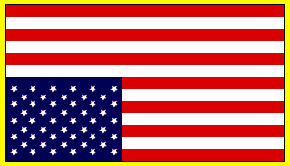
 Can Congress Write Clear Laws ?
Can Congress Write Clear Laws ?

Congress is capable of writing clear tax laws, witness the following:

26 USC 6103(b)(5)
The term ''State'' means -
(A) any of the 50 States, the District of Columbia, the Commonwealth of Puerto Rico, the Virgin Islands, the Canal Zone, Guam,
American Samoa, and the Commonwealth of the Northern Mariana Islands, and ...
 26 USC 6103(b)(5)
26 USC 6103(b)(5)

Now is that a clear definition of the term State that DOES include the
50 states ??? What is the difference between this and the others; like
26 USC 7701(a)(10)

48 USC § 1421. Income tax
(a) Applicability of Federal laws; separate tax
The income-tax laws in force in the United States of America and those which may hereafter
be enacted shall be held to be likewise in force in Guam: Provided, That notwithstanding any
other provision of law, the Legislature of Guam may levy a separate tax on all taxpayers in an
amount not to exceed 10 per centum of their annual income tax obligation to the Government
of Guam.
(b) Guam Territorial income tax
The income-tax laws in force in Guam pursuant to subsection (a) of this section shall be
deemed to impose a separate Territorial income tax, payable to the government of Guam,
which tax is designated the "Guam Territorial income tax".
(c) Enforcement of tax
The administration and enforcement of the Guam Territorial income tax shall be performed by
or under the supervision of the Governor. Any function needful to the administration and
enforcement of the income-tax laws in force in Guam pursuant to subsection (a) of this section
shall be performed by any officer or employee of the government of Guam duly authorized by
the Governor (either directly, or indirectly by one or more redelegations of authority) to
perform such function.
(d) "Income-tax laws" defined; administration and enforcement; rules and regulations
(1) The income-tax laws in force in Guam pursuant to subsection (a) of this section
include but are not limited to the following provisions of the Internal Revenue Code of
1986, where not manifestly inapplicable or incompatible with the intent of this section:
Subtitle A (26 U.S.C. 1 et seq.) (not including chapter 2 (26 U.S.C. 1401 et seq.) and
section 931 (26 U.S.C. 931)); chapters 24 and 25 of subtitle C (26 U.S.C. 3401 et
seq. and 3501 et seq.), with reference to the collection of income tax at source on
wages; and all provisions of subtitle F (26 U.S.C. 6001 et seq.) which apply to the
income tax, including provisions as to crimes, other offenses, and forfeitures contained
in chapter 75 (26 U.S.C. 7201 et seq.). For the period after 1950 and prior to the
effective date of the repeal of any provision of the Internal Revenue Code of 1939
which corresponds to one or more of those provisions of the Internal Revenue Code of
1986 which are included in the income-tax laws in force in Guam pursuant to
subsection (a) of this section, such income-tax laws include but are not limited to such
provisions of the Internal Revenue Code of 1939.
 48 USC 1421
48 USC 1421

Now, this is clear tax law, and it is obvious how the tax is imposed. So, since Congress is capable of writing clear laws,
you try and find the United States Code Section that imposes the tax on Citizens, in America, exercising their "Right to Work"
Why do you suppose there is none ? How do you explain that ?



Web Author: The Disciples of Truth - R Safe
Copyright ©1997 by Agents of the LORD GOD - ALL RIGHTS RESERVED


 Can Congress Write Clear Laws ?
Can Congress Write Clear Laws ?




